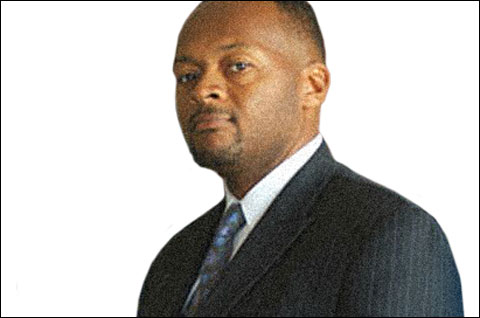
NEW GUARD: Michael Curry is part of a new generation of black leadership schooled more in politics than oppression. |
When the Theater District's Cure Lounge ejected a group of black Harvard and Yale alums and grad students last month, many saw it as the latest confirmation of Boston's racist core.
It is a perception — as old as Bill Russell and as current as Skip Gates — that successful, professional-class blacks will find more hostility than welcome in the Hub.
The Cure incident also caused heartburn for city leaders. With two major black conferences coming to Boston this summer, they hope to prove how far Boston has come in terms of race relations. The Urban League conference in July and Blacks in Government (BIG) the next month are expected to bring a combined 13,000 visitors to the city — breaking what has been, in effect, a quarter-century boycott of Boston. If something like the Cure incident were to happen during those conferences, it could do exactly the opposite, setting the city back years.
"We thought Boston was ready for an opportunity," says BIG president J. David Reeves. "Things have changed over the past 20 or 30 years."
Not only has the city changed, but Boston's black leadership is changing, too: from the "old guard" who emerged first from the busing and other civil-rights struggles, and then from the drugs and crime problems of the 1980s and '90s, to a generation whose political savvy and inclusive outlook just might help Boston to finally make room for a vibrant black middle class.
Two important, and symbolic, parts of that transition happened within the past month. In the Boston City Council chamber, Ayanna Pressley and Felix Arroyo Jr. — a 35-year-old African American and 30-year-old Latino, both in their first year of public office — joined nine of their colleagues to expel long-time civil-rights and community activist Chuck Turner from office, in the wake of his conviction on federal corruption charges. It was seen by many as a shift from old us-versus-them black leadership (which includes Charles Yancey, Turner's lone supporting vote), to new leaders ready to do the right thing for the city.
And the Boston Chapter of the NAACP elected 42-year-old Michael Curry over former state senator Bill Owens to be its next president. Curry, who ran with a slate of candidates as "a new generation of leadership," is expected to make the old, increasingly forgotten organization a much stronger partner across racial lines in the city.
These transitions are not without controversy within the city's black community. There are many who have railed against Pressley and Arroyo for betraying Turner, and by implication their side of the racial divide. Many resisted Curry's election, and he was elected by a slim margin in a contentious vote.
But many others see both developments as signs of a much-needed shift toward a leadership better attuned to the problems that keep black talent out of Boston — and much better equipped to work within the system to bring about changes.
Tough crowd
City leaders — in business, government, academia, and elsewhere — increasingly understand that in the 21st century, a city's success depends upon attracting and keeping bright, educated talent of all demographics. That means making the city livable and comfortable for professionals who are gay, female, or members of a racial minority.